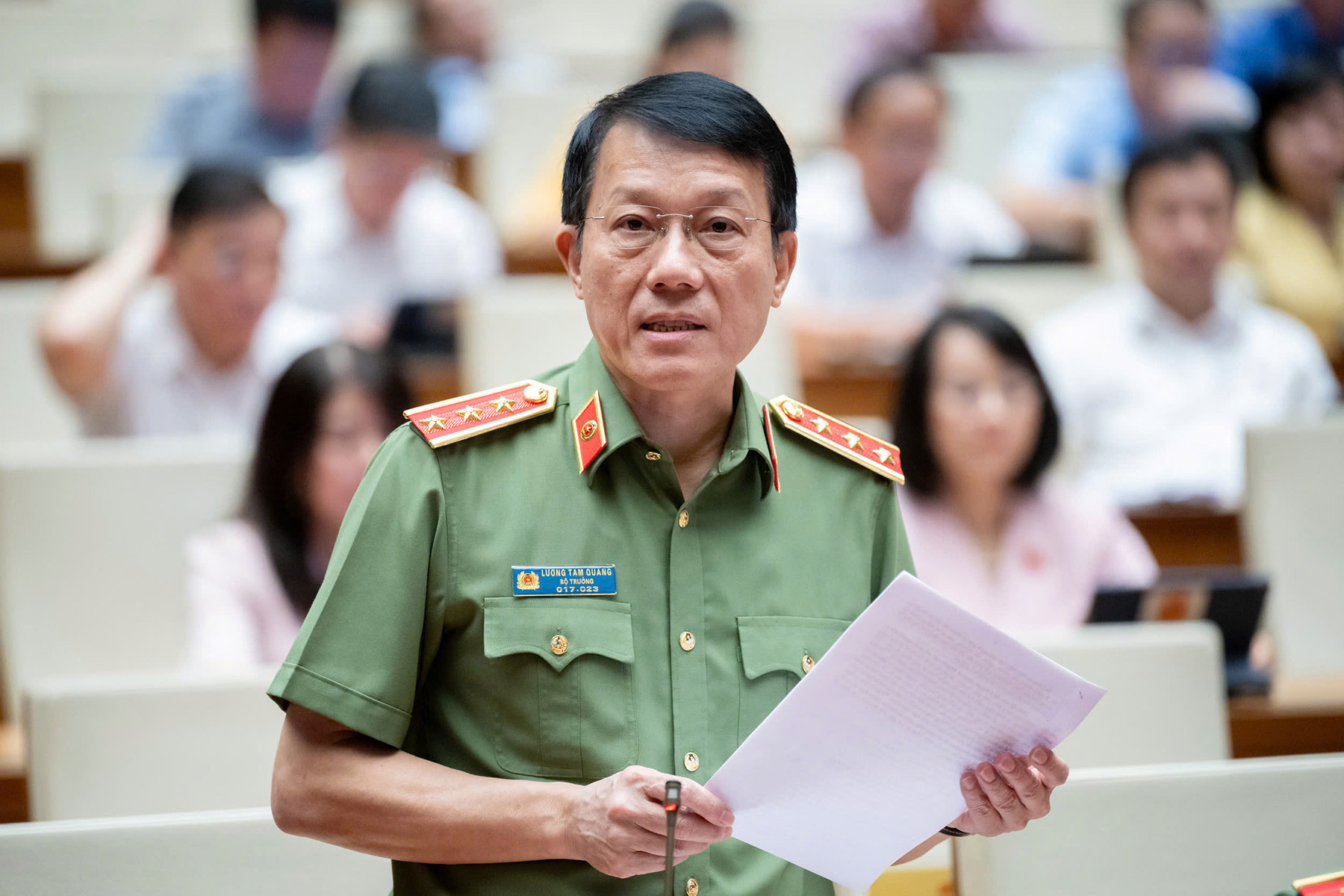
On the morning of August 22, the National Assembly's Standing Committee continued its session to question officials on various topics, including justice, internal affairs, security, social safety, inspection, courts, and prosecution.
Responding to questions about combating cybercrime and high-tech crime, Minister of Public Security Luong Tam Quang highlighted that cybercrime and the use of high technology pose non-traditional security challenges not only for Vietnam but also for countries worldwide.
The United Nations is currently proposing an International Cybercrime Convention, which is expected to be signed soon, with Vietnam’s Ministry of Public Security being one of the signatories.
Minister Luong Tam Quang outlined three key characteristics of cybercrime that make detection and prosecution difficult: its cross-border nature, high level of anonymity, and advanced technological capabilities. He noted that almost everything that exists in the physical world has a counterpart in cyberspace, with the potential to multiply in scale.
Therefore, the approach to combating this type of crime must also be unique and specialized.
The Minister stressed the need to improve the legal framework, increase public awareness through extensive communication, and rigorously investigate and prosecute offenders.
One of the key measures mentioned was the promotion of electronic identification accounts for citizens. These accounts serve as a "cyberspace ID," enabling the authentication of identities during various activities, thereby reducing anonymity and preventing fraud.
Another crucial solution involves integrating the national population database with financial systems to verify information, clean up bank accounts, eliminate fake accounts, and remove unregistered SIM cards. These measures aim to curb high-tech crimes, particularly online fraud.
Minister Quang also highlighted ongoing efforts to strengthen the cybersecurity and high-tech crime prevention capabilities of law enforcement agencies. The Ministry of Public Security has established dedicated cybercrime units across all 63 provinces and cities, ensuring that these forces have the skills and tools necessary to combat cybercrime effectively.
If these breakthrough solutions are successfully implemented, significant progress is expected in the near future.
Minister Quang advised citizens to be vigilant and proactive in preventing high-tech crime, particularly scams. He emphasized the importance of being cautious when receiving phone calls from unknown individuals and regularly updating security and privacy settings on social media accounts.
He urged the public not to disclose personal information, phone numbers, or bank account details to anyone without verifying the identity of the person requesting the information.
Additionally, Minister Quang recommended thorough verification and careful review of information when conducting online or electronic transactions. "If there is any suspicion of criminal activity, promptly report it to the nearest authority for guidance and resolution," he advised.
During a previous questioning session on August 21, National Assembly delegate Nguyen Anh Tri (representing Hanoi) expressed concerns from voters that the government needs to organize more robust and well-equipped forces to effectively combat cybercrime. He questioned the government's strategy for organizing forces to address cybercrime in the future.
Quang Phong & Thu Hang